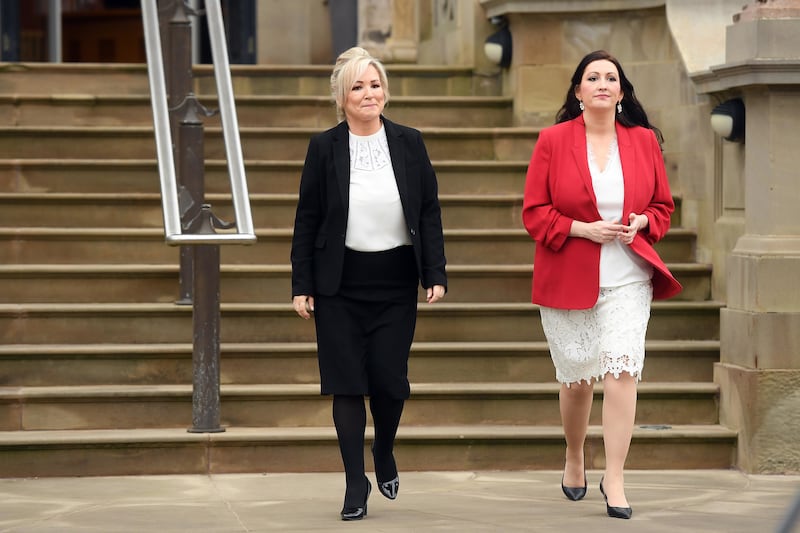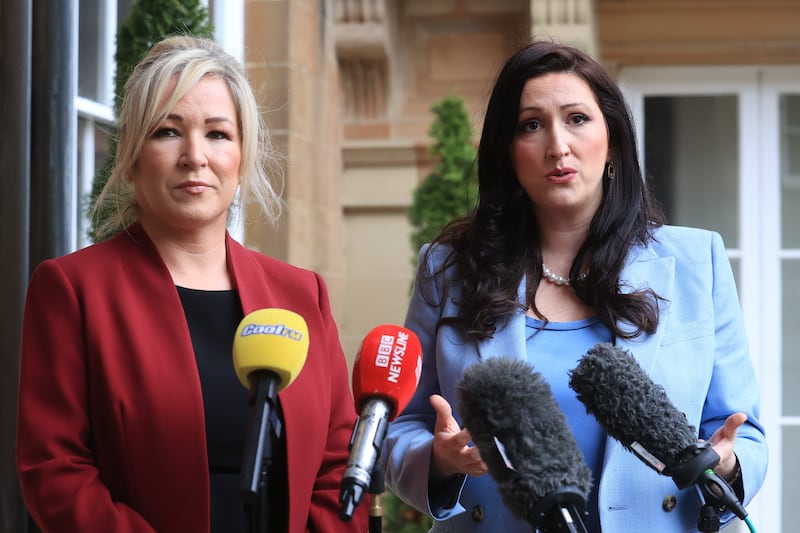Stormont’s leaders have defended the executive’s record in the weeks since the institutions were restored, with the deputy first minister warning that the main issues of public concern will not be “resolved quickly”.
First Minister Michelle O’Neill and Deputy First Minister Emma Little-Pengelly were speaking some 11 weeks after the DUP ended its two-year boycott of the assembly and executive.
When asked about the delivery record to date, both leaders citied settling the public sector pay dispute. However, they conceded that other pending issues, including health service transformation, tackling the Lough Neagh environmental catastrophe and introducing affordable childcare will take longer.
The Sinn Féin first minister also appeared to waver on her previous commitment not to introduce revenue raising measures.

Speaking on Wednesday, Ms O’Neill said it was necessary to “widen the debate around fiscal levers”, whereas in February she said it was “not good enough to ask people to pay more for services that are in decline”.
The Executive Office has been asked to clarify whether this represents a shift in policy.
The first minister said the Conservative government had failed to invest in the north which had resulted in the “decimation of public services”.
“That’s why all of our collective will in the executive has to be to fight for that proper funding model to allow us to do public services here in the way in which we want, and let us deliver on things that we’ve all collectively prioritised – things like child care, things like turning around the transformation of our health service,” she said.
Ms O’Neill said that in the 11 weeks since the institutions were restored the executive had been “able to turn around some things very quickly”.
“We’re very quickly moving towards the Programme for Government being established, the budget being set, and a legislative program being set, and those things don’t happen overnight because of all the work that has to go into developer legislation,” she said.
“So 11 weeks in, I’m pleased with how far we’ve got. Not to be complacent because I know we’ve got an awful lot of work to do but collectively this executive is determined to deliver things together and to do things differently.”
Ms Little-Pengelly said that the normal functioning of government was not simply judged on the bringing forward legislation.
“Indeed, legislation without a purpose isn’t good legislation,” she said.
The deputy first minister said the executive needed to be “very honest with people” by making it clear that complex issues cannot be resolved quickly.
“I don’t think anybody out there believes that these issues can be resolved very quickly,” she said.
“They have to be resolved by the right solutions, the right interventions, supported by the right funding, and carried out and delivered in the right way.”
SDLP leader Colum Eastwood said the executive parties “spent months in talks with the civil service about what they would deliver” but had nothing to show for it.
“The only thing Michelle O’Neill and Emma Little-Pengelly have delivered so far is a hike in the rates - and now the language on further fiscal levers is slowly changing,” the Foyle MP said.
“They should at least be honest with people - what are they going to be asked to pay and what will this government deliver.”








